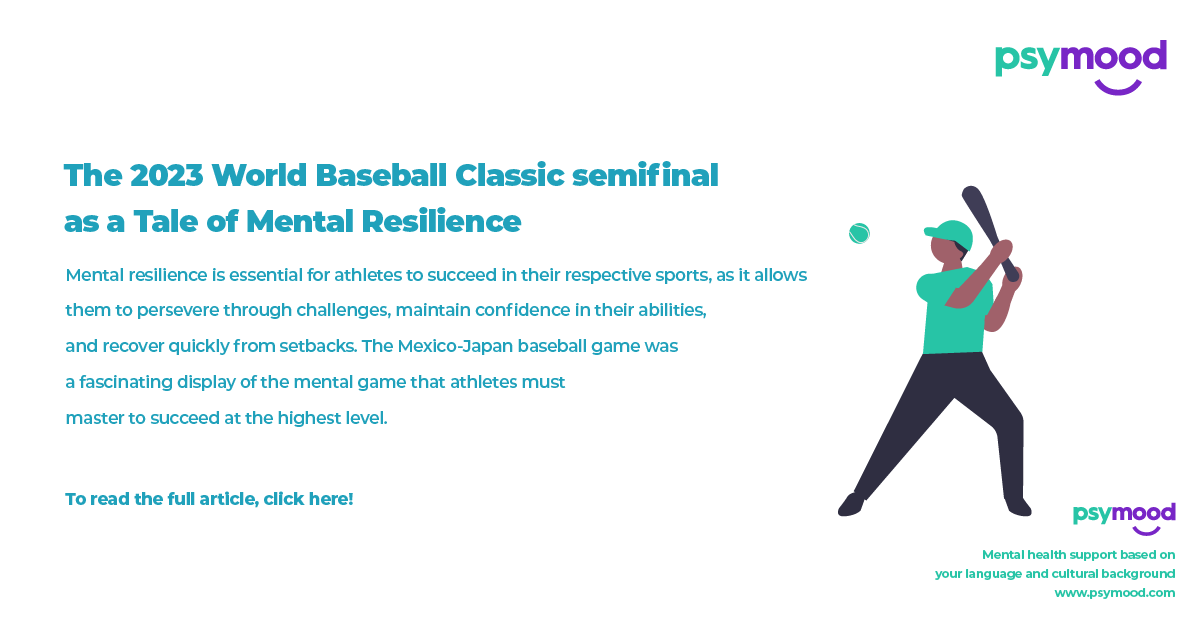The 2023 World Baseball Classic semifinal as a Tale of Mental Resilience
It is not an exaggeration for me to say that the recent Mexico-Japan match was a true nail-biter that had fans on the edge of their seats. Baseball, after all, is a sport of multi-layered mind games between team adversaries. This game, in particular, left me deeply inspired by their displays of mental dexterity and fortitude.
From the very start of the game, it was clear that both teams were evenly matched. The pitchers were throwing fastballs that seemed to come out of nowhere, and the batters were swinging for the fences. But despite the intense competition, the players remained calm and focused, relying on their mental strength to keep them in the game.
As the innings went on, the tension in the stadium began to mount. Every play, every pitch, and every swing of the bat had the potential to change the course of the game. But even as the pressure mounted, the players remained in control of their emotions, taking deep breaths and visualizing their success.
I found it especially valuable to see how each team had its unique custom to celebrate smaller successes like the Mexican team putting a mariachi hat on someone who hit a home run. This helped me finally realize that celebrating partial goals or milestones is a must to remain happy and healthy.
As the game entered the final innings, it was still anyone’s game. But then, in a stunning display of mental toughness, Mexico’s star player Arozarano stepped up to the plate and hit a home run that sent the crowd into a frenzy. The entire team erupted in celebration, hugging each other and high-fiving their way back to the dugout.
But Japan wasn’t about to give up without a fight. They rallied in the final inning, putting pressure on Mexico’s defence and scoring a run that brought them within striking distance of a tie. The tension in the stadium was palpable as Japan’s final batter stepped up to the plate, the fate of the game resting on his shoulders.
But even as the pressure mounted, the players on both teams remained focused and composed. They had trained their minds as much as their bodies, and they knew that mental toughness was just as important as physical strength in a game like this.
The Mental Skills at Play
The Mexico-Japan baseball game was a fascinating display of the mental game that athletes must master to succeed at the highest level. One key factor was the players’ ability to stay present at the moment, blocking out distractions and focusing only on the task at hand. This allowed them to maintain their concentration in critical situations.
Another important aspect of the player’s mental game was their ability to manage their emotions. Baseball can be an emotional sport, with players experiencing highs and lows throughout a game. However, the players on both teams remained in control of their emotions, using techniques like deep breathing and visualization to stay calm and focused.
The players’ mental toughness was also on full display. Baseball is a game of failures, with even the best players failing to get a hit more often than not. But the players on both teams were able to bounce back from mistakes and setbacks, not letting them affect their performance. This resilience and mental toughness are essential to success in sports and life.
Finally, the players’ ability to work together as a team was also a testament to their mental game. Baseball is a team sport, and even the most talented individual players cannot win games alone. The players on both teams were able to put their egos aside and work together towards a common goal. This required excellent communication skills, trust, and a shared understanding of their roles on the team.
In conclusion, the Mexico-Japan baseball game was not just a display of physical prowess but also mental fortitude. The players’ ability to stay present, manage their emotions, display resilience, and work together as a team were all essential to their success. These mental skills are not just important in sports but also all areas of life, and we can all learn from their example.
The players on both teams displayed incredible skill and athleticism, but what stood out the most was their mental toughness and resilience.
PsyMood is a digital tool designed to help you find the support you need in the language that you are most comfortable with. PsyMood considers cultural background, geographical location, interests, and personal needs, amongst other factors, to pair you with service providers for either online or in-person therapy sessions.


.png)
.png)
.png)
Recent Comments